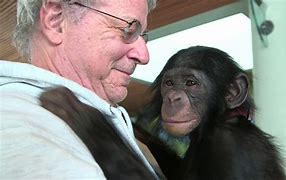Adapted from an obituary by reporter for The NY Times Sam Roberts, NYT Feb. 22, 2024
Steven M. Wise, an animal rights lawyer, died on Feb. 15 at his home in Coral Springs, Fla. He was 73. The cause was complications of glioblastoma, an aggressive form of brain cancer, his child Siena Wise said.
Wise wrote several books, including “Rattling the Cage: Toward Legal Rights for Animals” (2000), which the legal scholar Cass R, Sunstein, in a New York Times review, called “an impassioned, fascinating and in many ways startling book”; “Drawing the Line: Science and the Case for Animal Rights” (2002); “Though the Heavens May Fall: The Landmark Trial That Led to the End of Human Slavery” (2005), a best seller about an English case that determined that a slave was a person with legal rights; and “An American Trilogy: Death, Slavery, and Dominion on the Banks of the Cape Fear River” (2009).
In 2013, after decades of legal and scientific research, the Nonhuman Rights Project filed what it characterized as a groundbreaking writ of habeas corpus — requiring the authorities to produce an incarcerated person before a judge. However, the petition was not for a human being but for Tommy, a chimpanzee being held in a shed at a used-trailer lot in Gloversville, N.Y., by a man who said he had rescued him from someplace even worse.
“Previously, lawyers had expanded the definition of animal welfare (as opposed to animal rights) by encompassing the treatment of animals in scientific research and in animal husbandry. Comparing legal attitudes toward animals with human enslavement before the Civil War, Mr. Wise said animal rights laws would offer more protection than anti-cruelty statues against, for example, state-sponsored deer hunts and the Navy’s deployment of dolphins on life-threatening duties.”
“Certain species are capable of complex emotions, can communicate using language and have a sense of self,” Mr. Wise said in a 2005 lecture, “all characteristics that once defined humanity.”
“I don’t see a difference,” he added, “between a chimpanzee and my 4-year-old son.”
After losing in a lower court, Mr. Wise argued before an Appellate Division panel in Albany, N.Y., that Tommy “can understand the past, he can anticipate the future, and he suffers as much in solitary confinement as a human being.”
Tommy was featured in “Unlocking the Cage” a 2016 documentary about the Nonhuman Rights Project directed by Chris Hegedus and D.A. Pennebaker. According to some sources, he also appeared with Matthew Broderick in the 1987 film “Project X.” Mr. Wise suggested that eight other species might deserve the same rights as chimps:gorillas, orangutans, bonobos, Atlantic bottlenose dolphins, African gray parrots, dogs, honeybees and African elephants (including one at the Bronx Zoo, whose legal status his organization unsuccessfully challenged). He cited a test conducted on great apes whose faces were dabbed with a red dot. When they looked in the mirror, they reached for the dot on their faces, not in the reflection, indicating a sense of self.
In an interview with the nonprofit organization My Dreams for Animals, he defined bodily liberty: “Our cases are not about whether they are being treated well or ill in captivity — they’re about whether they should be held in captivity at all.”
But the appellate court ruled unanimously against the notion that Tommy the chimp be given legal status as a person, similar to the protections granted corporations, holding that, “unlike human beings, chimpanzees cannot bear any legal duties, submit to societal responsibilities or be held legally accountable for their actions.”
Mr. Wise was the first president of the Animal Legal Defense Fund and the founder and president of the Nonhuman Rights Project. He also taught courses on animal rights at Harvard and other law schools.
The notion of nonhuman animal rights has perturbed numerous legal scholars, prominent among them Richard A. Posner, a former federal judge who taught at the University of Chicago.
“If we fail to maintain a bright line between animals and human beings,” Mr. Posner once said, “we may end up by treating human beings as badly as we treat animals.”
Other scholars disagree. Laurence H. Tribe, a professor emeritus at Harvard Law School, said in an email that Mr. Wise “will be remembered well beyond our time as one of the most farsighted and influential pioneers in the history of animal rights and animal welfare.”
Mr. Wise did not get the courts to recognize animals’ personhood as cognitive, emotional and social beings who have the same moral and statutory entitlement to freedom that people do. However, he did draw attention to the issue as he pushed to expand the boundaries of our understanding how we see the law and ourselves.






